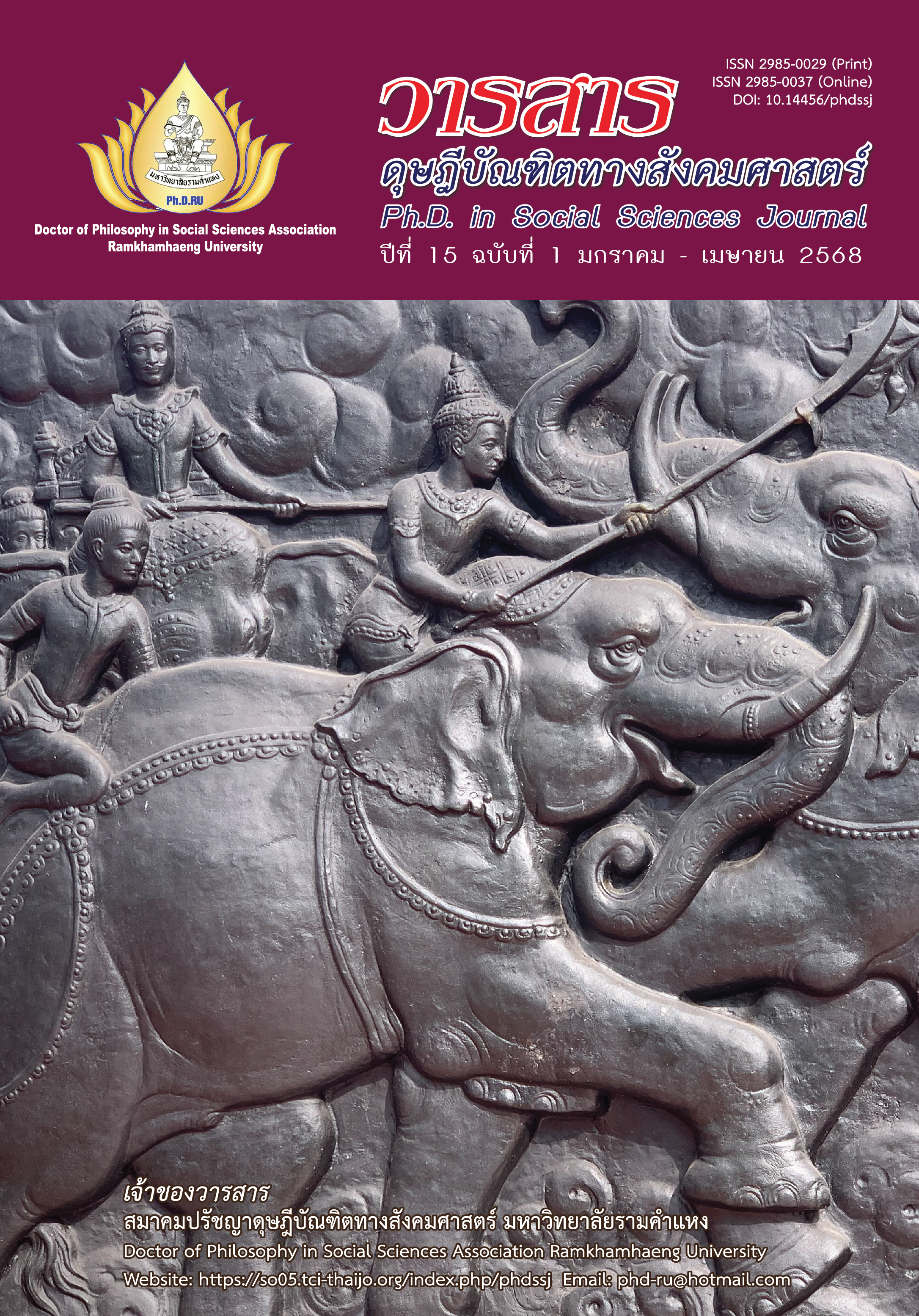The Criminal Prosecution Problems Under the Royal Ordinance on Fisheries B.E. 2558 (2015): A Case Study of Criminal Penalties for Preparing Entry and Exit Documents for Commercial Fishing Vessels
Main Article Content
Abstract
This research article aims to (1) study the concepts, theories, and evolution of criminal prosecution problems in preparing port-in and port-out documents that affect commercial fisheries; (2) study comparative laws and problems in criminal prosecution in preparing port-in and port-out documents that affect commercial fishing both in Thailand and foreign countries; (3) analyze the problems of criminal prosecution in the preparation of port-in and port-out documents that affect commercial fishing; and (4) create legal measures necessary to solve the problem of criminal prosecution in the preparation of port-in and port-out documents that affect commercial fishing. The researcher used a qualitative research model, collected data through document research and in-depth interviews, and analyzed the data using content analysis techniques and interpretations from comparisons.
Findings are as follows: This Royal Ordinance on Fisheries B.E. 2558 has a problem regarding the need for documentation regarding fishing operations, and installing monitoring devices for fishing vessels involves too many steps and is overly complex. The fines imposed are criminally disproportionate, and the enforcement of the law by government officials is problematic. The legislative branch should enact a new Royal Ordinance on Fisheries immediately. In particular, aligning the penalty rate with the nature of the offense would assist officials in relevant agencies in understanding the principles of the law as outlined in the Royal Ordinance on Fisheries B.E. 2558. Specifically, the Fisheries Department aims to make document preparation easier for fishermen, vessel masters, and captains. As a result, if the government enacts a new Royal Ordinance on Fisheries, it will assist in alleviating and resolving the suffering of fishing professionals over the last nine years while also encouraging them to have the physical and mental strength to pursue an honest career. Additionally, it will ensure the sustainability of future generations.
Article Details

This work is licensed under a Creative Commons Attribution-NonCommercial-NoDerivatives 4.0 International License.
Academic articles, research articles, and book reviews in the Ph.D. in Social Sciences Journal are author’s opinions, and not the publisher’s, and is not the responsibility of the Ph.D. in Social Sciences Journal Philosophy Association, Ramkhamhaeng University. (In the case that research is done on human, the researcher has to be trained in Ethics for Doing Research on Human Training and has to produce the evidence of the training).
References
Junvith, P. (2011). Economic analysis of criminal laws. The Thailand Research Fund. [In Thai]
Nantawaroprai, D. (2024). Compliance with obligations under international agreements affecting the Thai fishing crisis case study: Punishment measures under the Royal Ordinance on Fisheries Act B.E. 2558. Ph.D. in Social Sciences Journal, 14(2), 471-48. [In Thai]
Petchdee, N. (2018). Criminal penalty: A study of criminal fine for public procurement corruption in Thailand. Master’s Thesis of Laws (Criminal Law), Thammasat University. [In Thai]
Sirichai-ekawat, W. (n.d.). Solving Thailand’s Illegal, Unreported, and Unregulated (IUU) Fishing problems in the last 5 years. n.p. [In Thai]
Srisanit, P. (2020). Advanced criminal law: Crime, criminal liability and criminal sentence (3rd ed.). Winyuchon. [In Thai]


